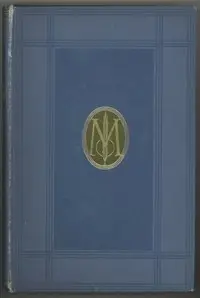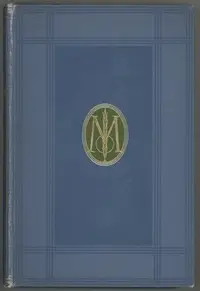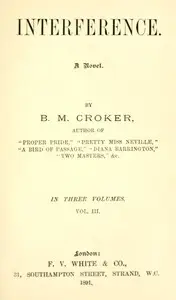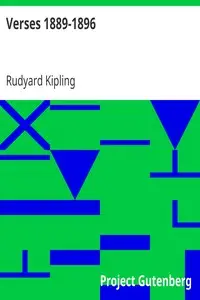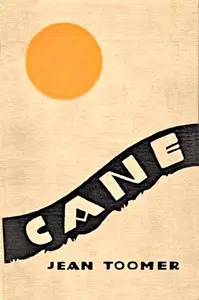"Evan Harrington — Volume 3" by George Meredith is a story set in a time when social class heavily influenced people's lives. The story follows Evan Harrington, a tailor, and his sister, the Countess de Saldar, as they deal with high society and its expectations. The Countess, focused on climbing the social ladder, tries to hide her brother's profession while pursuing her own ambitions at Beckley Court, a place full of English nobility. This creates tension because Evan doesn't quite fit into the upper class world his sister wants to be a part of, and he is tested with issues of who he is and what people think of him because of his job, all while trying to find love. The beginning of the story shows how hard it was to break free from what society expected of you and how important your family's background was thought to be.

Evan Harrington — Volume 3
By George Meredith
Amidst social expectations and romantic entanglements, a tailor and his ambitious sister navigate the rigid world of high society.
Summary
About the AuthorGeorge Meredith was an English novelist and poet of the Victorian era. At first, his focus was poetry, influenced by John Keats among others, but Meredith gradually established a reputation as a novelist. The Ordeal of Richard Feverel (1859) briefly scandalised Victorian literary circles. Of his later novels, the most enduring is The Egoist (1879), though in his lifetime his greatest success was Diana of the Crossways (1885). His novels were innovative in their attention to characters' psychology, and also portrayed social change. His style, in both poetry and prose, was noted for its syntactic complexity; Oscar Wilde likened it to "chaos illumined by brilliant flashes of lightning". Meredith was an encourager of other novelists, as well as an influence on them; among those to benefit were Robert Louis Stevenson and George Gissing. Meredith was nominated for the Nobel Prize in Literature seven times.
George Meredith was an English novelist and poet of the Victorian era. At first, his focus was poetry, influenced by John Keats among others, but Meredith gradually established a reputation as a novelist. The Ordeal of Richard Feverel (1859) briefly scandalised Victorian literary circles. Of his later novels, the most enduring is The Egoist (1879), though in his lifetime his greatest success was Diana of the Crossways (1885). His novels were innovative in their attention to characters' psychology, and also portrayed social change. His style, in both poetry and prose, was noted for its syntactic complexity; Oscar Wilde likened it to "chaos illumined by brilliant flashes of lightning". Meredith was an encourager of other novelists, as well as an influence on them; among those to benefit were Robert Louis Stevenson and George Gissing. Meredith was nominated for the Nobel Prize in Literature seven times.








